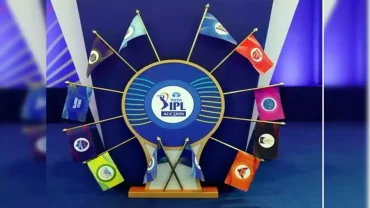A Comprehensive Guide to Screenwriting Contests
Screenwriting contests are a gateway for aspiring screenwriters to break into the competitive entertainment industry. With the potential to secure representation, option scripts, and gain exposure to industry professionals, these contests can provide a significant boost to one’s career. This guide delves into what screenwriting contests are, their benefits, and how to navigate them effectively.
What Are Screenwriting Contests?
Screenwriting contests are competitions where writers submit their screenplays to be judged by a panel of industry professionals or seasoned writers. These contests typically categorize entries by format—such as feature films, TV pilots, or short scripts—and genre, including drama, comedy, thriller, and more. Winners and finalists often receive cash prizes, mentorship opportunities, and industry exposure.
Why Enter a Screenwriting Contest?
1. Industry Exposure: Winning or placing in a reputable contest can get your script in front of agents, managers, and producers. Many contests share their winners with a network of industry insiders actively seeking new talent.
2. Constructive Feedback: Some contests offer detailed feedback from judges or professional readers, helping writers refine their craft.
3. Credibility: A strong contest placement adds credibility to your portfolio. It signals to industry professionals that your work has been vetted and praised by experts.
4. Networking Opportunities: Many contests host events, workshops, or festivals where finalists can connect with industry professionals and fellow writers.
5. Monetary Rewards and Resources: Some contests offer cash prizes, software subscriptions, or access to exclusive writing resources that can support your career.
Choosing the Right Contest
Not all screenwriting contests are created equal. Before entering, research thoroughly to ensure the contest aligns with your goals.
1. Reputable Contests: Contests like the Nicholl Fellowship, Austin Film Festival Screenplay Competition, PAGE International Screenwriting Awards, and Final Draft Big Break are industry-recognized and have a history of launching careers.
2. Genre-Specific Contests: Some contests cater to specific genres or niches, such as horror, sci-fi, or LGBTQ+ stories. If your script aligns with a particular theme, these contests can be a great fit.
3. Feedback Opportunities: If you’re looking to improve your script, consider contests that provide written feedback or consultations.
4. Budget-Friendly Options: Entry fees can add up quickly, so prioritize contests with reasonable fees and clear benefits. Some contests also offer early-bird discounts or fee waivers for students.
How to Prepare Your Submission
Submitting to a screenwriting contest requires more than just a great script. Here are key steps to ensure your submission stands out:
1. Polish Your Script: Ensure your script is free of typos, formatting errors, and inconsistencies. Professionalism counts, as judges are often inundated with entries.
2. Follow Guidelines: Each contest has specific rules regarding formatting, length, and submission procedures. Failure to comply can result in disqualification.
3. Write a Strong Logline: A compelling logline can hook the judges and give them a clear sense of your story’s essence.
4. Research the Judges: Understanding who’s judging can help you tailor your script or highlight aspects of your work that might resonate with them.
5. Craft a Personal Statement: Some contests ask for a bio or statement of purpose. Use this opportunity to share your passion and what makes your perspective unique.
Common Pitfalls to Avoid
1. Overinvesting in Entry Fees: Avoid spending beyond your means on contest entries. Focus on quality over quantity and prioritize contests with proven benefits.
2. Ignoring Formatting Standards: Proper screenplay formatting is crucial. Use industry-standard software like Final Draft or Celtx to ensure your script looks professional.
3. Overlooking Small Contests: While big-name contests are enticing, smaller or niche contests may offer more personalized opportunities and less competition.
4. Taking Rejections Personally: Contests are subjective. Not winning doesn’t mean your script isn’t good—it may simply not align with the judges’ preferences.
5. Focusing Solely on Contests: While contests are valuable, they’re just one pathway to success. Don’t neglect other avenues like querying agents, networking, or producing independent projects.
Conclusion
Screenwriting contests are a valuable tool for aspiring writers to gain exposure, improve their craft, and open doors in the entertainment industry. By choosing the right contests, preparing thoroughly, and maintaining realistic expectations, you can maximize your chances of success. Remember, every successful screenwriter started somewhere—and your journey could begin with the right contest.






